Trump's big stick, swinging at global automakers
![]() 04/08 2025
04/08 2025
![]() 340
340
Introduction
Introduction
The butterfly effect of tariffs has begun. 'The world we know no longer exists.'
Temporarily 'cutting off' supply to the US for a month, British automaker Jaguar Land Rover has made a 'difficult choice'.
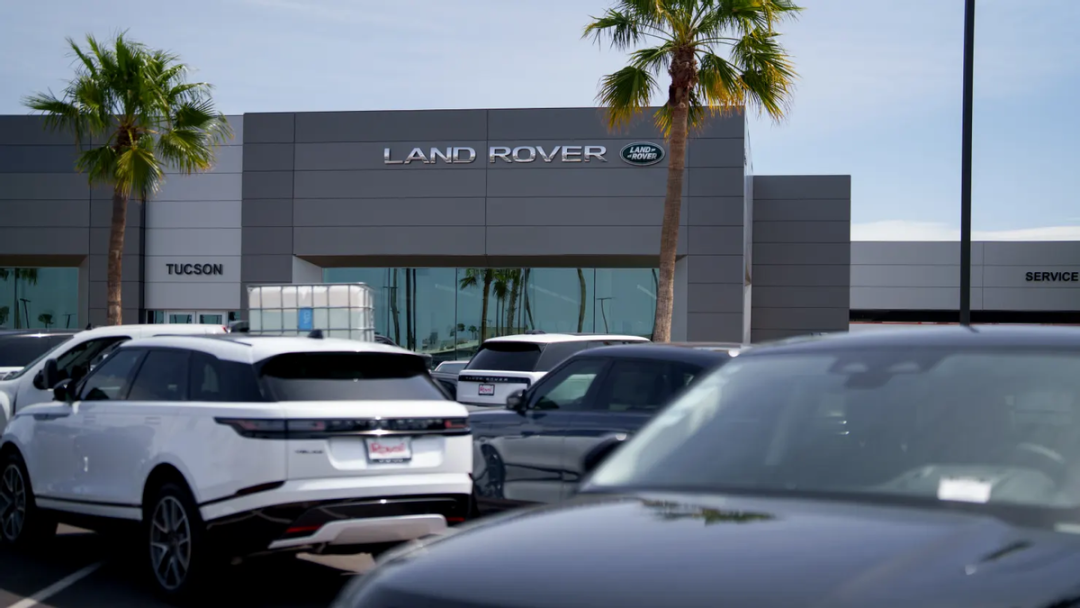
Although it has not yet reached the 'darkest hour' faced by Churchill, as British Prime Minister Keir Starmer said, 'The world we know no longer exists.'
Foreign media reported that Jaguar Land Rover has suspended exports of British-made cars to the US for a month and is exploring ways to mitigate the impact of tariffs on costs.
This tariff policy was signed by US President Trump, imposing a 25% tariff on imported cars and light trucks starting from April 3rd.
Jaguar Land Rover is helpless. In an email statement, it said, 'We are working with business partners to deal with new trade terms. We are taking some short-term actions, including suspending shipments in April, while formulating medium and long-term plans.'
Jaguar Land Rover also stated in its announcement that the US is an important market for its luxury brands. With annual sales of 400,000 vehicles, sales to the US account for almost a quarter of its total sales. Now, with the tariff stick swung, Jaguar Land Rover has become the first automaker to officially respond.
01 Helpless 'stockout'
In fact, in the face of impending tariffs, stockpiling in advance is a relatively common approach.
For example, US-based General Motors disclosed that its first-quarter sales increased by 17% year-on-year, with retail sales up 15%. In particular, sales of GM's Korean-made small SUV Trax surged by 57%, also due to consumers purchasing cars in advance to avoid potential price increases.
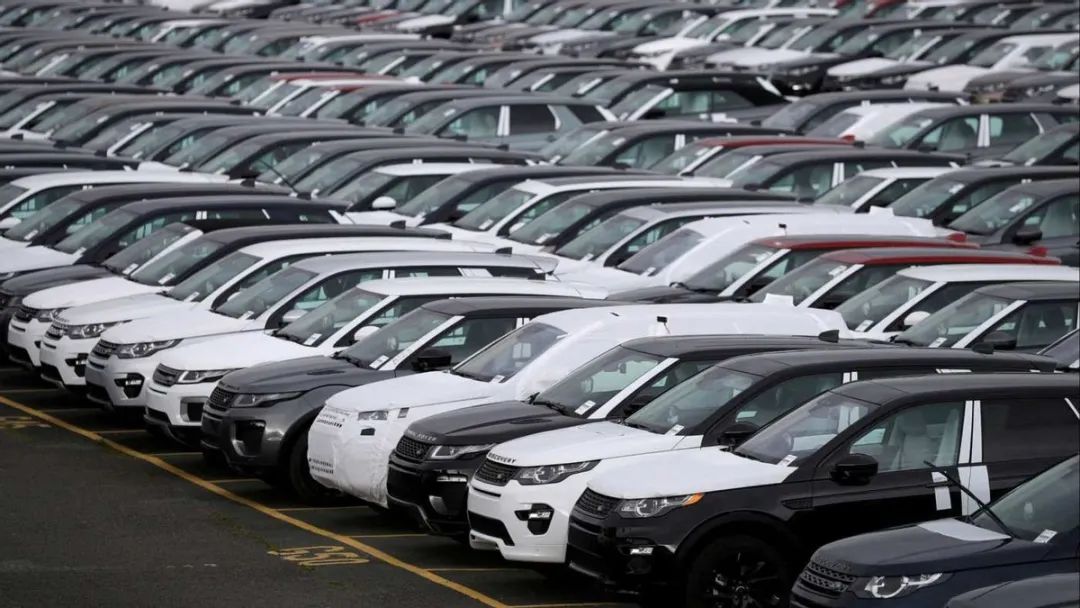
This time, British automakers have also taken measures to stockpile before the tariff increase takes effect. Data from the Society of Motor Manufacturers and Traders (SMMT) shows that UK exports to the US increased by 38.5% year-on-year in December, 12.4% in January, and 34.6% in February.
Based on this calculation, Jaguar Land Rover's inventory in the US is expected to last about two months. Once shipments resume, the process of new shipments arriving will take about 21 days.
Judging from the 'stockout' measure, Jaguar Land Rover is also 'doing what it has to do', that is, reducing tariff cost losses in the short term and gaining time for subsequent adjustments through existing inventory. At the same time, this decision will directly lead to a 15% reduction in production at its Solihull plant in the UK, with about 2,000 workers being forced to take leave.
More broadly, due to the new tariff policy, 200,000 employees directly employed by the UK automotive industry will be affected.
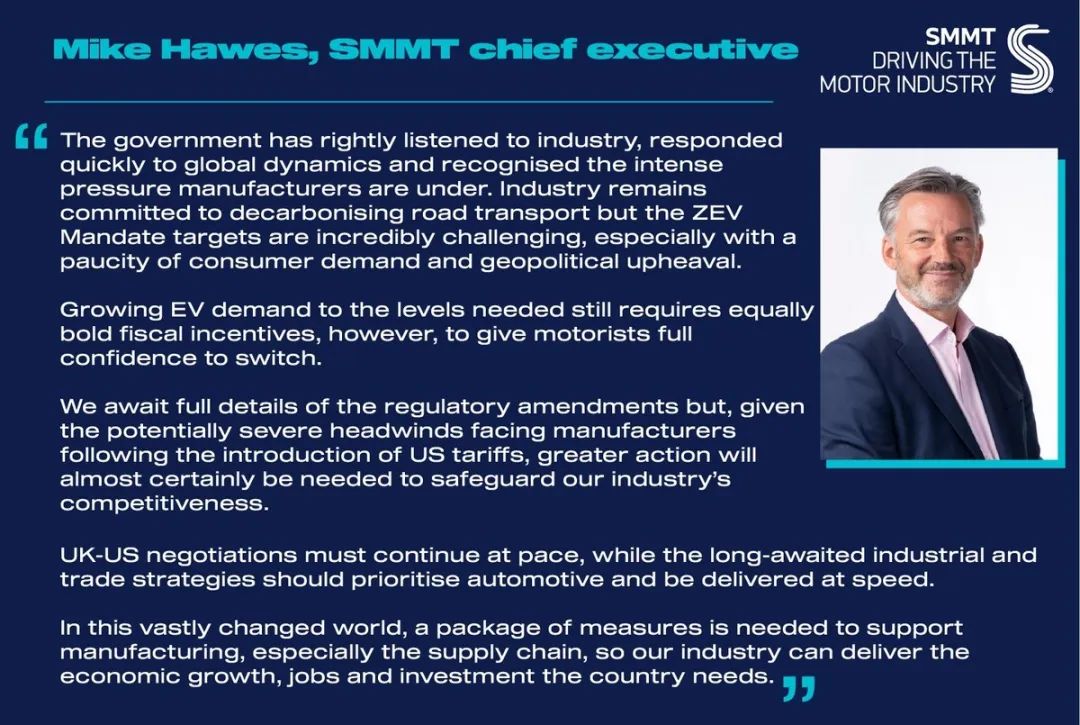
According to SMMT data, the number of cars produced in the UK fell by 13.9% last year to 779,584. More than 77% of these cars were exported. These models include Nissan Qashqai and Juke, BMW Mini, Toyota Corolla, and vehicles from Jaguar Land Rover.
Mike Hawes, CEO of SMMT, said, 'The automotive industry is already facing multiple headwinds, and this announcement comes at the right time. SMMT has been in contact with the government and will seek to accelerate trade negotiations, as we need to find a way forward that supports employment and economic growth on both sides of the Atlantic.'
British Prime Minister Keir Starmer said that the UK government will respond to Trump's tariff measures with a 'calm' attitude and is currently negotiating a trade agreement with the US. In addition to imposing a 25% tariff on automotive exports and steel and aluminum products, the UK is also one of the countries subject to a 10% benchmark import tariff this week.
Not only Jaguar Land Rover, but the entire EU is also greatly affected. Germany reacted fiercely, criticizing Trump's imposition of a 25% tariff as bad news for the US, the EU, and global trade.
Economists Inga Fechner and Rico Luman from ING Bank said that although Germany is the most affected by Trump's 25% car tariff in terms of value, Slovakia may be the most affected. Known as the 'Detroit of Europe,' Slovakia produces more cars per capita than any other country in the world.
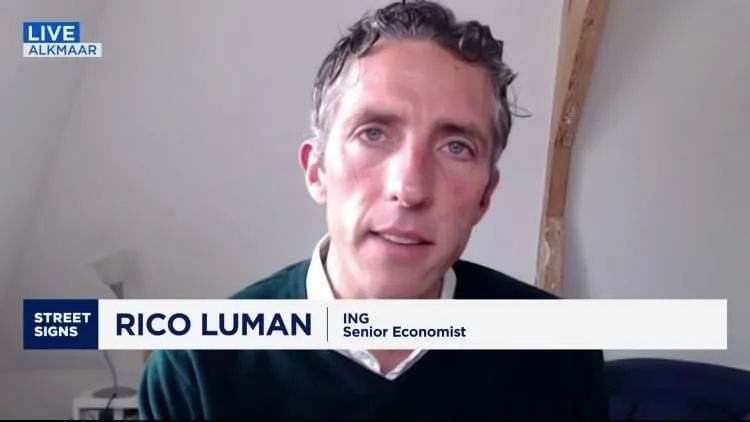
This country of only 5.4 million people is heavily dependent on US trade, with cars accounting for a large portion of its exports to the US. The automotive industry indirectly employs over 250,000 people.
According to ING statistics, Slovakia ranks third in Europe alongside Sweden in terms of passenger car exports to the US, with exports of 4 billion euros ($4.3 billion) in 2023.
Over 73% of Slovakia's total exports to the US are cars and auto parts, making the country highly vulnerable to Trump's tariffs.
Luman of ING said, 'Supply chains will not be immediately realigned and redesigned amid high uncertainty faced by investors, but if this situation persists for some time, production will begin to shift to the US.'
And this may be exactly the result Trump wants.
02 Is it possible to rebuild the supply chain?
Facing the tariff stick, each company's response measures can be described as ' the eight immortals crossing the sea , each showing his special prowess ' (each does what he does best).
Some are relatively tough, for example, Ferrari, with strong brand premium power, dares to raise prices. The day after the tariffs took effect, Ferrari announced a 10% price increase for some models.
Others are struggling. It is reported that Stellantis announced that it had to temporarily lay off 900 American employees. In 2024, Stellantis' net profit plummeted by 70% due to tariff expectations, and its North American supply chain is highly dependent on Mexican plants, with the new tariffs expected to increase the cost of each vehicle by about $4,200.
Although Stellantis obtained a one-month tariff exemption on March 5th, as the comprehensive tariff policy was implemented, cost pressures soared again. Therefore, this layoff is a reluctant choice under high cost pressure, hoping to buffer the impact of tariffs by reducing labor cost expenditures.
Ford Motor Company, on the other hand, is 'doing the opposite.' Ford launched the 'Built Ford Tough' promotion plan to grab market share by reducing prices. The 'Raptor' F-150 saw an 8% price reduction, and the Mustang Mach-E electric vehicle fell to $42,000 after subsidies, $3,000 cheaper than the Tesla Model Y.
Under this strategy, Ford's market share rebounded to 14.2% in March. Ford CEO Jim Farley confidently stated, 'Localized production that meets USMCA standards is our moat.'
In the Chinese market, which has also imposed retaliatory tariffs of 34%, Ford China currently only exports Lincoln brand models to the US. When I inquired with relevant personnel from Ford China, they said, 'I personally believe there will definitely be an impact. The specifics are not yet clear, but the import and export teams are currently verifying details with the corresponding departments.'
In addition, the most fundamental solution, which is also the goal the commander-in-chief wants to achieve by wielding the tariff stick, is to guide the manufacturing supply chain back to the US and rebuild MAGA. This will also lead to the restructuring of the global automotive supply chain.
For example, Toyota announced an investment of $280 million to expand its Kentucky plant, increasing production capacity of hybrid Highlanders to 300,000 units. Honda, on the other hand, is accelerating the construction of its electric vehicle production line in Alabama, planning to increase electric vehicle production capacity in North America to 800,000 units by 2026.
Hyundai Group of South Korea is even more aggressive. From 2025 to 2028, it will invest $21 billion in the US, including $9 billion to establish a production capacity of 1.2 million vehicles per year and increase the localization rate of batteries from 35% to 70%.
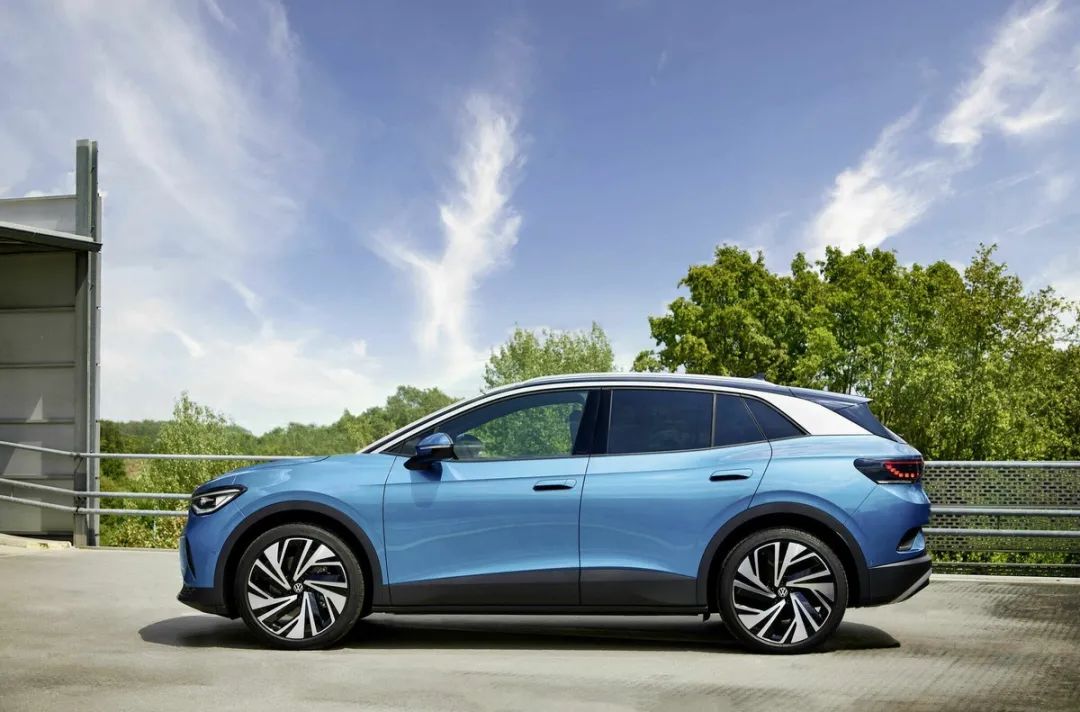
Furthermore, Volkswagen Group announced that it will increase its localization rate in North America from 45% to 75% over the next five years and adjust the supply chain for the ID.4: Motors will be produced in-house at a Tennessee plant, and batteries will be sourced from SK Innovation's Georgia plant. In addition, it plans to build two new battery plants in Mexico. After adjustments, Volkswagen expects to reduce the cost per vehicle by 12% after 2027.
Oliver Zipse, CEO of BMW, was blunt, saying, 'Mexico is our core chip for hedging trade risks.' BMW invested 1.2 billion euros to expand its San Luis Potosi plant in Mexico, increasing production capacity of the X3 and X5 to 400,000 units per year. 75% of the parts for vehicles produced at this plant come from North America, qualifying for tariff exemptions.
Meanwhile, Financial Times reported that the CEO of Volvo said on Thursday that the company is considering increasing production of another model at its US plant in South Carolina, which has an annual production capacity of 150,000 vehicles.
Nissan is also considering restructuring its supply chain to cope with tariffs. Last Friday, Nissan Motor Co. said it would no longer accept any new orders for two Infiniti luxury models produced in Mexico for the US market.
Nissan also said it plans to maintain two shifts on the production line at its Smyrna plant in Tennessee. Previously, the company had said it would reduce production to one shift to save costs. In addition, Nissan plans to transfer some Rogue SUV production from its domestic plant in Kyushu to Smyrna.
In addition to Ford and GM, Tesla has the hedging chip of its Shanghai plant. According to relevant statistics, the local procurement rate of batteries and motors for Model 3/Y produced in China is 92%, meeting the US exemption clause of 'a 10% tax reduction for localization of key components exceeding 75%'.
However, the 'butterfly effect' in the automotive industry triggered by tariffs has made it clear to the outside world that the competitive landscape of the next decade has already begun to reshape.
The 'tariff war' in 2025 is ending the 'golden age' of the automotive industry and ushering in the 'age of dark iron'.
Editor in charge: Cui Liwen Editor: He Zengrong







